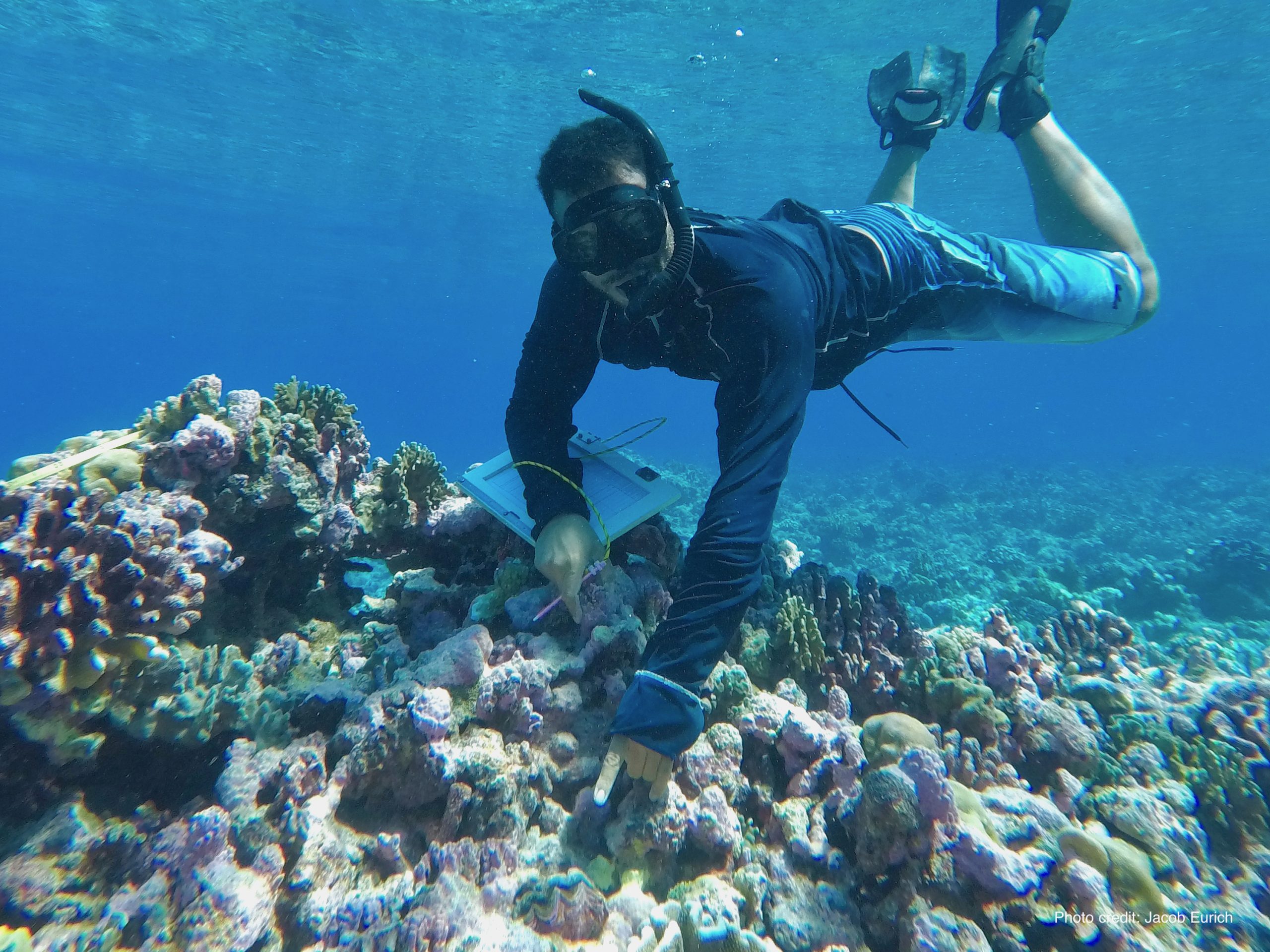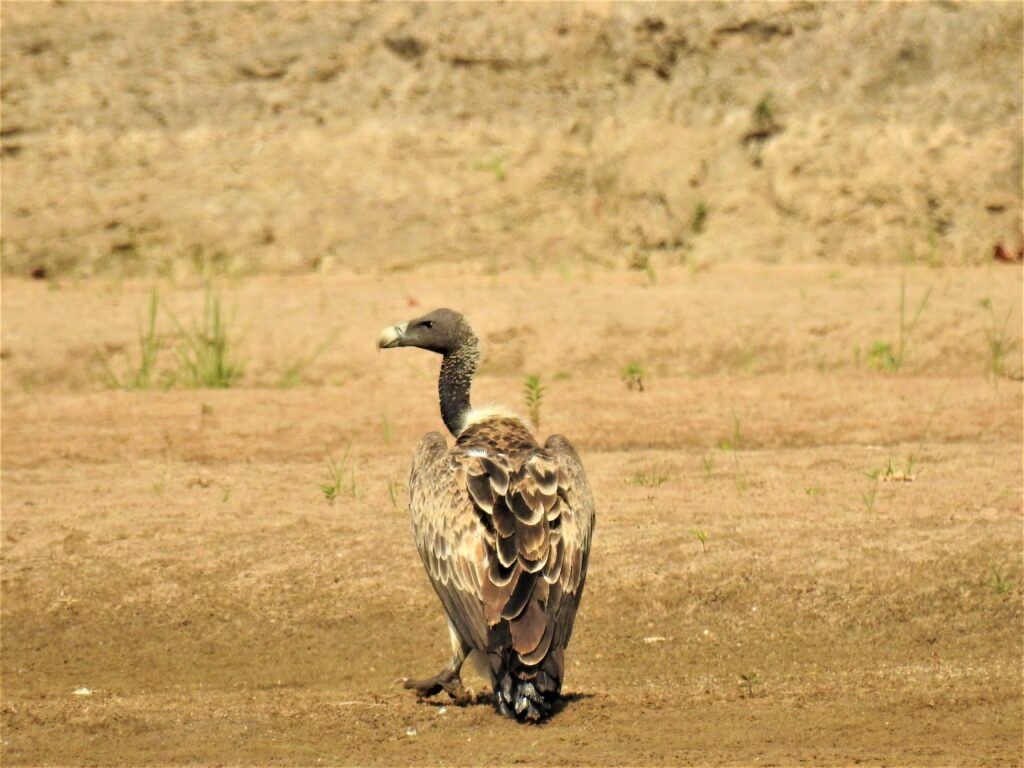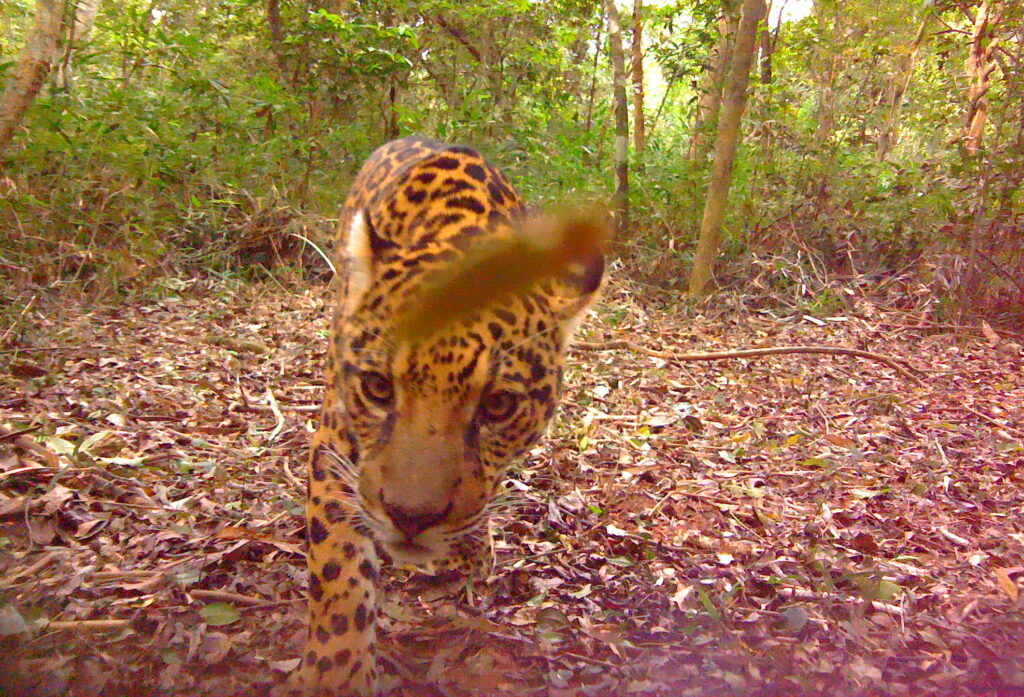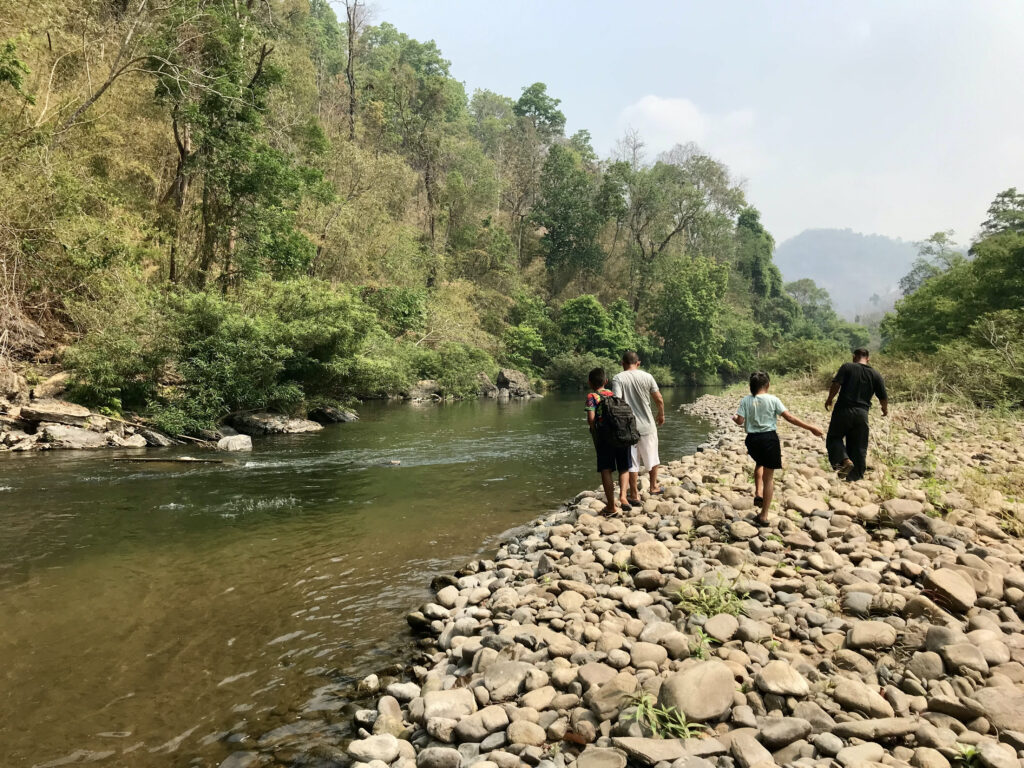Climate change is a major threat to the health of our oceans and the species within them. These species are not only important members of the ecosystem, but also contribute to coastal communities by providing a traditional food source. Therefore, food provisioning is one of the most compelling ways in which we can understand how oceans contribute to human well-being.
“Unfortunately, one of the most sizable blind spots in our understanding of coral reefs is whether and how these reefs shape human health. In theory, coral reefs should operate as biodiverse, living refrigerators for coastal communities, sourcing replenishable, nutritious food,” says Dr. Douglas McCauley. Sharing successful stories of resilience can influence local managers to act promptly.
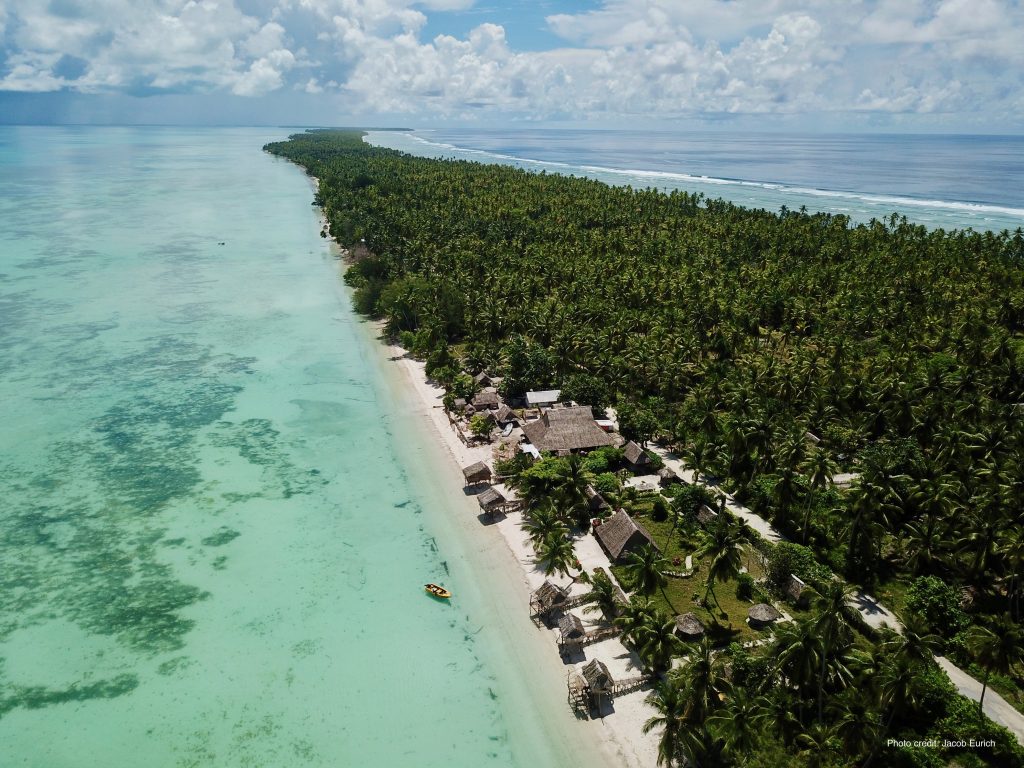
In terms of nutrition, the developing world draws the most significant benefits from oceans through small-scale fisheries. This is especially true with respect to poor communities. For example, access to seafood means the difference between having seafood and rice for dinner, or simply rice. Unfortunately, in many developing countries, local fisheries are in sharp decline due to weak governance, poor knowledge of stock status, illegal fishing, population pressures, and climate change. Thus, assessing fisheries’ strengths and vulnerabilities to climate change remains a priority, especially in places where fishery data is limited.
Marine fisheries in Kiribati
The Pacific Planetary Health Initiative embarked on a project that unites their network of coral reef ecologists, public health researchers, social scientists, and local Fisheries Officers. Recently, they published a study in Frontiers in Public Health examining how improving the conservation of a giant clam fishery can benefit human nutrition and health across Kiribati, a small Pacific Island nation. The project utilised the Climate-Resilient Fisheries Planning Tool to integrate scientific research, case studies, and expert knowledge, which was developed by a Science for Nature and People Partnership (SNAPP) group working on Climate-Resilient Fisheries.
Resilience is the capacity to prepare for, resist, cope with, recover from, or adapt to a given shock. Resilience is important in the context of fisheries in Kiribati because they are being called upon to provide an increasing amount of the I-Kiribati food for a rising population. Giant clams are particularly important on remote outer islands, where they are used in traditional dances and are served as a delicacy on special occasions or at feasts. Clams contribute substantially to nutrition as molluscs are rich in micronutrients (i.e., omega-3 and vitamin B12). Additionally, because clams are often dried, salted, and stored, they play a key role in food security, providing calories and nutrients at critical times when a household is otherwise unable to obtain seafood.
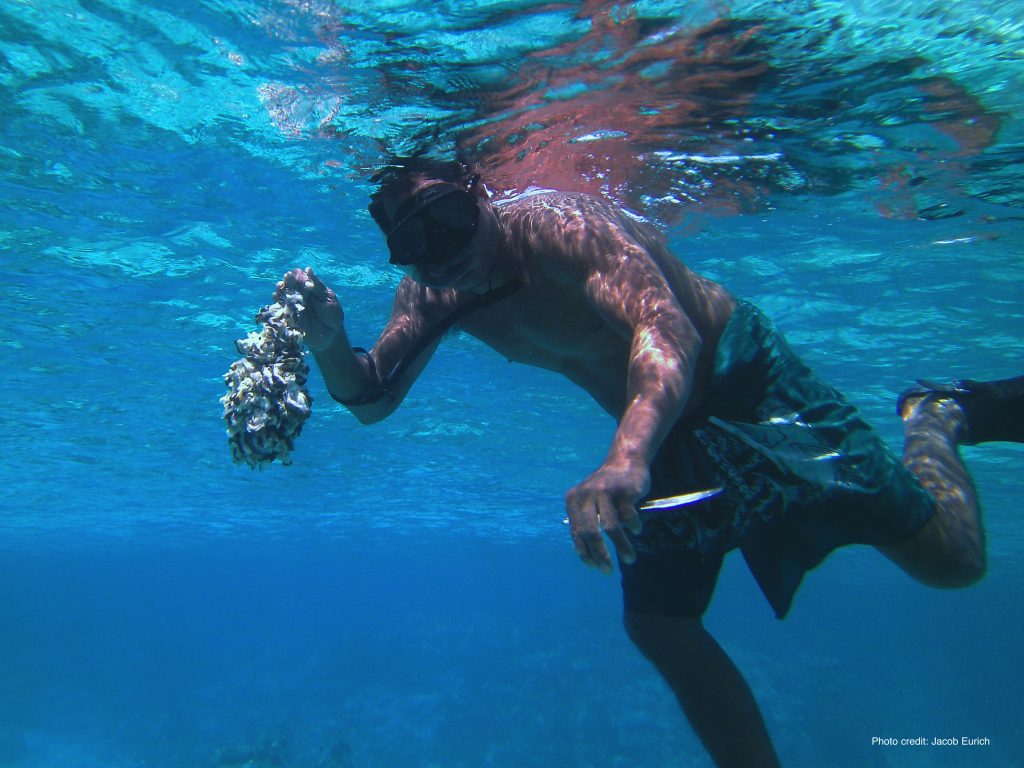
Marine fisheries are among the first food systems to experience the effects of climate change, as waters warm and oceans acidify. Conserving the diversity and beauty of species in endangered marine ecosystems like coral reefs is a cause that resonates with many people. Others, however, only gain interest when it can be proven that the oceans benefit the people and communities they represent.
Lessons to learn
Our study highlights that Kiribati relies on traditional practices and a strong resilience mindset to climate change, characterised by the capacity to learn. Together, these allow the local Island Council government to adapt and respond rapidly with policies and practices meant to mitigate the effects of climate change. These traditional practices include daily bag and possession limits as well as size restrictions for harvested clams, both common Western fisheries management techniques. Additionally, community-based fisheries management, such as demarcating fisher-driven no-take marine protected areas has improved the local giant clam fishery in Kiribati and supported the persistence of traditional clam fisheries on remote islands. In turn, these practices have ensured a steady supply of healthy seafood. Emphasising effective, dynamic, connected, and just governance in future conservation measures is key to the success of adaptive management.
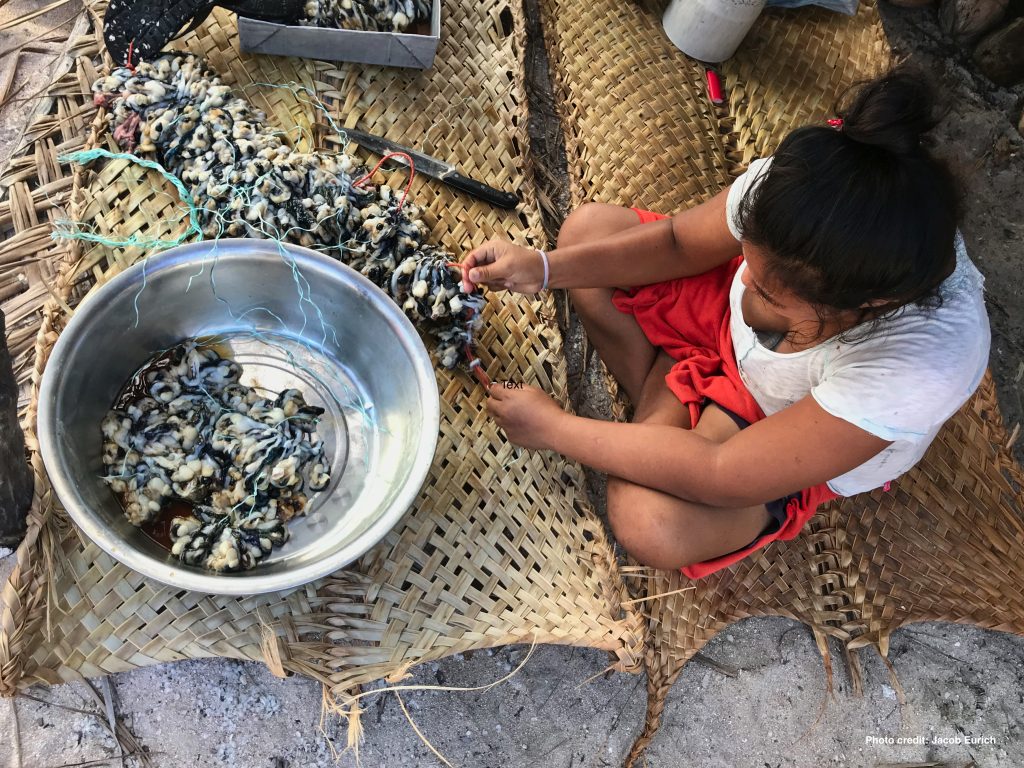
The study’s findings advance policy-orientated changes in fisheries governance and coastal management that can improve food security and climate resilience in other fisheries. Specifically, traditional fishing practices and good governance include elements of adaptive capacity and climate resilience. Including and elevating this local knowledge through participatory research offers a promising approach to design more effective and equitable policies. As fishery stakeholders continue to develop national climate-resilience plans across both developing and developed nations, local knowledge must be engaged to meet the needs of the communities most impacted.
Further Reading
Eurich, J. G., A. Tekiau, K. L. Seto, E. Aram, T. Beiateuea, C. D. Golden, B. Rabwere and D. J. McCauley. 2023. Resilience of a giant clam subsistence fishery in Kiribati to climate change. Pacific Conservation Biology: PC22050. https://doi.org/10.1071/PC22050
